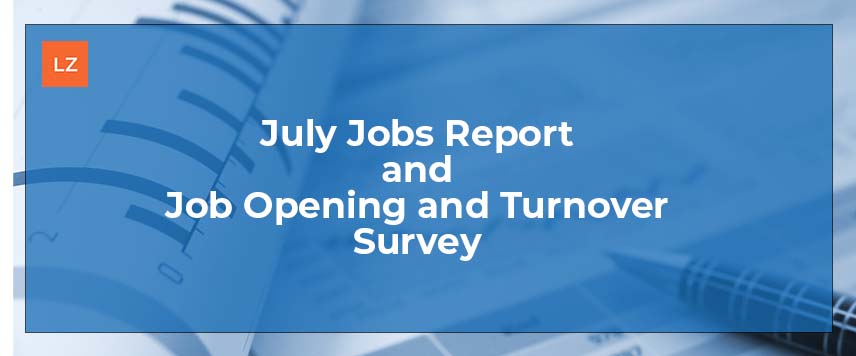We are a little over halfway through 2023, and this year has seen so many new buzz words in the recruitment and human resources industries. Today’s new word was only created last year, but many experts are saying that the practice has been around for ages. If you haven’t heard it yet, rage applying is happening in businesses around the world at a dizzying rate; this viral trend has caught fire since being promoted on TikTok by a Canadian millennial just last December. In it, a woman claims that she got mad and “rage-applied” to fifteen different jobs, and one of them happened to net her new employment with more pay and benefits.
What is rage applying? This can (and does!) happen anywhere that workers are unhappy and unfulfilled in their jobs. Many experts view rage applying as the natural, albeit “more aggressive,” evolution of “quiet quitting.” Sometimes, this is the result of a bad day, and a worker who spent an afternoon in a bad mood, while applying to a dozen new jobs, can recover. However, rage applying that is being caused by a toxic work environment can damage a company brand, strangling any recruitment and retention strategies. It is important to understand the signs of rage applying from both sides of the equation: from the side of the employee who wants a better work experience and from the side of management who is dealing with applicants who may not even remember applying for the job, if they did so out of an emotional outburst. Hopefully, by understanding the “rage apply,” businesses can take the steps to mitigate its effects.
Despite all of my rage applying, “I am still just a rat in a cage…”
Rage applying has really resonated with Gen Z and millennial workers; they are the ones most commonly associated with this trend. According to LinkedIn, these generations of workers have had their world view changed by the Covid-19 pandemic. Instead of keeping a “working to live” mentality, many millennials and Gen Z workers have found this distasteful and are switching it up to make sure their work comes in second to their outside lives. They have found that most of the institutions they were raised to believe were infallible, are, in fact, extremely fallible and capable of being corrupted or destroyed. Gen Z employees, in particular, are prone to distrust the government, the economy, corporate infrastructures, and more after the financial and political upheavals they have already lived through in their short years. In this context and frame of mind, these workers depend on themselves first and foremost for their happiness, and that periodically means taking the control back through rage applying for any and every job they can find, even if they are not remotely qualified for it, and even if it is in a completely different geographic region of the country.
There are several sure signs of a staff that is rage applying on their breaks. The first is a toxic work environment. (For more information about how to spot and work on a toxic workplace, see our blog post from June 14, 2023.) Workers who feel as if they are not in a positive office environment suffer from additional stress, and sometimes even burnout. Those suffering from these things could possibly lash out emotionally and start to rage apply to escape the bad conditions.
For some workers, it is not about the environment around them, but it is about the employee themselves, one who happens to be struggling. Sometimes, they will begin to rage apply if they feel slighted by a manager or passed over for a promotion. While getting a reaming from the boss can be a blow to a worker’s self-worth, a few hours of rage applying for new jobs can feel empowering. If an employee sees their efforts to secure a better position are rejected, then they will feel pressed to look for those opportunities elsewhere.
Not only do the slighted employees feel as if they are in control again, but it is also a way for workers to go through their résumé and remember the accomplishments they have made thus far, reminding themselves of their worth as a worker. These moments of self-reflection are important, and it can be gratifying and inspiring to spend a few moments remembering professional accomplishments. Also, the best and only way to practice interviewing is to go to them. It is imperative, though, to remember that rage applying is reactive and can blow up in one’s face if they are not careful.
Rage Applying Against the Machine
This trend is impossible to ignore for those in the recruiting and human resources industries. It is usually not difficult to spot the résumé of someone who spent the evening rage applying to various jobs. For those applicants, the first red flag is the cover letter that is not specific to the company they are applying for, and the candidate does not seem excited about the potential opportunity that could lie ahead at the business they applied to in their rage. Another sign is some of these applicants applying to multiple open positions within a company; recruiters have found that sometimes a person will rage apply to different positions in different departments, and sometimes even in different parts of the country, all within the same company. Most human resources departments will immediately toss the paperwork of applicants that do this and will not take them seriously in any way.
It is easy to push these rage applications to the side, seeing them as emotional, short-term responses to a bad day. However, not all of these are signs that the employee is inherently bad. Yes, some rage applicants are haphazardly trying to get a better job, but there are others that are good employees in bad situations, displaying a “fight-or-flight” response. Sorting through the stack of job applicants to determine which ones are legitimate is a daunting task already, but it is always important to remember that not every résumé will be clearly labeled and highlighted as a “rage application.” It could be difficult to tell, and a company could possibly find someone who is a perfect fit for an available position through a rage apply.
Conclusion
While there are success stories out there of people who have rage applied to several different jobs and received new positions and raises because of them, those successes are not the norm. What usually works is a strategic, well-laid, and well-researched plan of attack. Instead of applying to random jobs, millennial and Gen Z workers who are unhappy in their jobs should focus their efforts on landing a job better suited to the life they want; research shows it is rarely just about making more money for themselves. There is no point in jumping from one toxic workplace to another and doing that will be apparent on a CV, and it will not look flattering on the applicant. That means candidates will need to start researching company brands and culture to see if they are a good fit, and it will also involve taking the time to explore potential enthusiasm and optimism for the new job on the cover letter and résumé. Being haphazard and rage applying to a ton of new jobs every time someone has a bad day at work cannot be sustainably successful for anyone looking for a good, long-term job in a positive office environment.
On the flip side, for those looking at those résumés, do not forget to judge each applicant individually. Rage applying may be the buzz word of the year, but that does not mean that it is a new idea, and it does not mean that every person is raging for the same reason. For those workers simply looking for a more balanced work/life ratio or a more fulfilling role, the rage apply is not the most strategic of methods for changing employment, but, for a lucky few, it could be the jolt needed to find a new job that fits their lifestyle better. In either case, it is up to the new company to decide if they are recruiting a valuable employee or someone who will poison the positive office environment, and this decision must be evaluated carefully.
____________________________________________________________________________
Meaghan Goldberg covers recruitment and digital marketing for Lionzone. A Patterson, GA native, after graduating from both Valdosta State University and Middle Tennessee State University, Meaghan joined Lionzone in 2018 as a digital recruitment strategist before becoming the social media manager.
Resources:
https://www.cnbc.com/2023/01/25/is-rage-applying-the-new-quiet-quitting-heres-what-experts-say.html
https://www.linkedin.com/pulse/what-know-rage-applying-andrew-seaman/
https://www.businessinsider.com/rage-apppliers-think-twice-before-leaving-jobs-expert-2023-1




